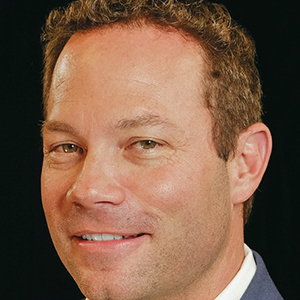
Guest Editor – David Brin
Today’s challenges call for robust learning plans for all workers
 “Learning and development(L&D) team members are considered essential workers.”
“Learning and development(L&D) team members are considered essential workers.”
How often during the pandemic did you read articles pertaining to the statement above? Probably not often enough!COVID-19 created a world of unpredictability, instability and constant change.
The longer we live through post-pandemic life, the more we see firsthand the number of people switching jobs, starting new careers, going remote or leaving the job force altogether. These factors combine to present a scenario where many companies are left short-staffed and often with less-tenured workforces.
All this underscores the importance of having a robust learning journey for both new and existing employees.
Changing Times
According to the Motley Fool, 20% of Americans have changed their careers since the pandemic began. And new research points toward one-third of the American workforce considering a different line of work in the future. If these statistics are true, a pretty strong argument can be made that L&D is an essential workforce and learning leaders should be as much a part of strategic planning as marketing and commercial leadership.
Let’s talk for a minute about the implications of a post-pandemic world with limitedstaff and minimal time and support for quality L&D.
Consider a real-life example: You are going into the hospital for a simple procedure, and the staff members supporting your doctor all have less than one year of experience. As a result, the medical team is unable to draw from years of relevant experience and does not have the tribal knowledge to answer questions quickly.
They likely are behaving in a conscious incompetent way – impeding their ability to anticipate needs or be seen as subject matter experts. Being asked to instill your trust in teams that lack critical experience is disconcerting to say the least and unfortunately all too often the norm in today’s world.
Not a day goes by where I don’t cross paths with someone who falls into the category of conscious incompetence. This scenario is probably all too familiar to you too – where you feel like you and that person are learning their job “together” as the process goes along.
The experience is often time-consuming, leaving you with a lack of confidence in the product or service, as well as leaving both parties feeling frustrated.
Time to Change
There’s never been a more important time for people to invest substantially in skill and knowledge development. This need is exacerbated by the fact that there are fewer workers to get the same amount of work, if not more, done.
Whether it’s learning a new software for funnel management or understanding a life-saving technology that may help a patient on the operating table, our learners are hungrier and more in need than ever for content that quickly helps them understand the scope and responsibility of their jobs, and most importantly, how to competently and efficiently get things done.
L&D always should have been considered an essential workforce. The need for us has just been exacerbated.
We as a learning community now need to help decision-makers understand that all learners fall some place in the hierarchy of competency. With innovative learning strategies and demonstrated metrics, business priorities can be met, customer service satisfaction can be higher than ever and gone will be the days when L&D was viewed as a “necessary evil.”
 David Brin is senior director, learning strategy & operations, USCAN, GE HealthCare. Email him at david.brin@ge.com.
David Brin is senior director, learning strategy & operations, USCAN, GE HealthCare. Email him at david.brin@ge.com.








